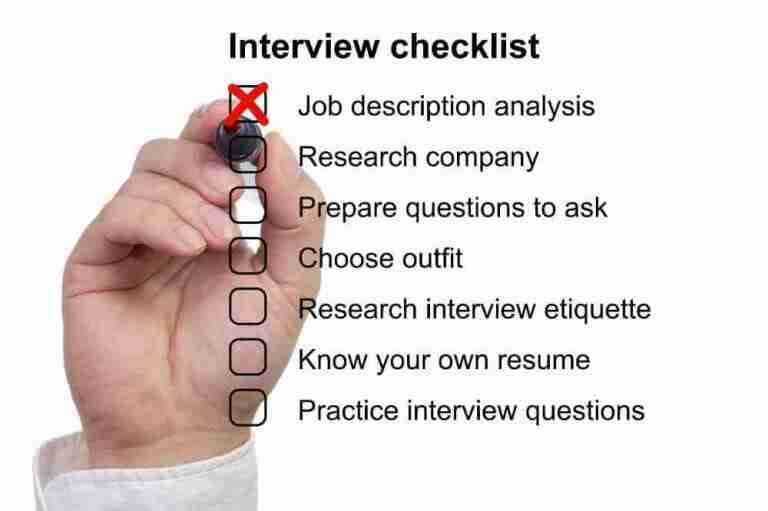How to Ask for a Raise via Email: A Comprehensive Overview
The Importance of Timing
Asking for a raise is a crucial step in advancing your career and improving your financial situation. However, timing is particularly important when it comes to requesting a raise via email.

You need to consider various factors, such as the company’s financial health and your manager’s workload and mindset.
Firstly, it’s essential to assess the company’s financial situation before asking for a raise. If the company is struggling financially, it may not be the right time to request an increase in salary.
Instead, wait until the company has stabilized or is experiencing growth again. This way, your request will be more likely to be considered positively.
Secondly, timing also plays a significant role in how receptive your manager will be towards your request for a raise. It’s best to wait until you’ve recently accomplished something significant or taken on additional responsibilities that demonstrate your value to the company.
This way, you can highlight these achievements in your email and make a stronger case for why you deserve a pay increase.

Another important consideration when timing your email is avoiding periods of high stress or workload for both yourself and your manager. If they are swamped with deadlines or overwhelmed by other responsibilities, they may not be able to give proper attention to their emails – including yours.
So, before hitting ‘send’ on an email requesting a raise, take time first to consider its timing carefully. Consider factors like the company’s financial health and whether there have been recent achievements or additional responsibilities that demonstrate your value as an employee.
By doing so, you’ll maximize your chances of success when requesting that well-deserved pay increase via email.
Remember: timing is everything.
Crafting a Professional Email

When it comes to asking for a raise via email, crafting a professional and effective message is essential. A poorly written or aggressive email could harm your chances of getting the raise you deserve, so it’s important to take the time to get it right.
Let’s discuss some key tips and strategies for crafting a professional email that will help you make your case for a raise.
First and foremost, it’s important to follow standard business letter format when crafting your email. This means starting with a formal greeting, such as “Dear [Manager’s Name],” and ending with a polite closing like “Sincerely” or “Best regards.”
Use respectful language throughout the email, avoiding any aggressive or demanding language that could come across as confrontational.
Next, be sure to clearly state the purpose of your email right away in the subject line. For example, you could use something like “Request for Salary Review” or “Request for Raise.”
This will ensure that your manager knows exactly what they’re opening before they even read your message.
In terms of the body of your email, start by briefly thanking your manager for their time and expressing how much you value working at the company. Then, move on to making your case for why you deserve a raise.
Be specific about any recent accomplishments or additional responsibilities you have taken on since being hired.

Example #1
“I wanted to take this opportunity to express my gratitude for working at XYZ Company over the past year. I have greatly enjoyed being part of such an innovative team and contributing towards our collective success.”
Example #2
“As I reflect on my tenure here at XYZ Company since joining last year as an entry-level sales associate with no prior experience in sales; I am proud of several accomplishments that demonstrate my ability & commitment towards achieving great results.”
Be sure to highlight any metrics or data points that support your case – if there are specific targets that you’ve met or exceeded, be sure to mention them. This will help your manager see the tangible value that you bring to the company.
In addition to citing specific accomplishments, it can also be helpful to research and cite industry data or market trends that support your request for a raise. For example, if you know that other companies in your industry are paying higher salaries for similar positions, this could be a useful point to bring up.
Finally, always proofread your email carefully before hitting “send.” Typos or errors could detract from your message and credibility. Take the time to review and edit your email for clarity and tone – it’s worth the extra effort!
Crafting a professional email is key when it comes to asking for a raise via email. By following standard business letter format, using respectful language and providing specific examples of why you deserve a raise- you will have more chances of getting what you truly deserve.
Supporting Your Case

When asking for a raise via email, it’s essential to support your case with concrete evidence. You need to show your employer why you deserve a raise and why it makes sense for the company to invest in you. In this chapter, we’ll discuss some useful strategies to help you build a compelling case for a pay increase.
First and foremost, take some time to reflect on your recent accomplishments. Think about the tasks you’ve completed successfully, the projects you’ve led or contributed significantly to, and how these achievements contributed positively to the company’s bottom line. These are all excellent points that can be used as evidence of your value as an employee.
Next, consider any additional responsibilities that have been added since your last salary review. If you’ve taken on extra tasks or are now performing at a higher level than when you were initially hired, make sure this is made clear in your email request. Be specific about what these added responsibilities entail and how they have impacted the company positively.
Another effective way of supporting your case is by highlighting any relevant training or development courses that you have completed since joining the company. This shows that you’re committed to improving yourself professionally and that investing in your skills will benefit both yourself and the organization.
It’s also worth researching industry-specific data on salaries for similar positions within other companies in your area or region. This information can be used as leverage when negotiating with your employer for better compensation packages.

Before finalizing your email request for a raise, ensure that all of these points are clearly laid out with specific examples backed up by data wherever possible. By doing so, not only will it make it easier for management to understand why you deserve more money but also demonstrate how valuable an asset you are as an employee.
One word of caution: don’t brag excessively about achievements or come off as too demanding when requesting a raise via email; this could damage relationships with management and coworkers. It’s important to maintain a humble attitude while still being assertive in your request for fair compensation.
Supporting your case with relevant data and specific examples is crucial when asking for a raise via email. By highlighting your achievements, additional responsibilities, training or development courses, and industry-specific salary data, you can build a strong case that highlights your value as an employee. Remember to keep it humble and polite in tone while still being assertive in asking for what you deserve.
Negotiation Strategies
When it comes to requesting a raise, negotiation is a crucial piece of the puzzle. In this chapter, we’ll discuss some negotiation strategies that you can use when crafting your email asking for a raise.
The first step in any negotiation is to do your research. You need to know what the average salary is for your position and what other companies are paying employees with similar job titles and responsibilities. This information will help you determine an appropriate starting point for your negotiations.
It’s also important to be prepared with alternative compensation options. For example, if your company can’t afford to give you a raise right now, perhaps there are other benefits or perks that they could offer instead. Some possible options include additional vacation time, flexible work hours, or an opportunity to work on a special project that interests you.
Once you have done your research and identified potential alternatives, it’s time to craft your email. As we discussed in the previous chapter on crafting professional emails, it’s important to use respectful language and avoid being aggressive or demanding.
When making your case for why you deserve a raise, be sure to highlight any recent accomplishments or additional responsibilities that you’ve taken on since being hired. This will help demonstrate how valuable you are to the company and why you deserve an increase in compensation.
In addition to highlighting your own accomplishments, it’s also important to emphasize how much value you bring to the company as a whole. For example, if you have helped increase sales or streamline operations in some way, be sure to mention this in your email.
Finally, don’t forget about timing when it comes to negotiating for a raise via email. You want to make sure that your contributions are fresh in your manager’s mind and that the company is financially able to offer you an increase in compensation.

To summarize, when negotiating for a raise via email:
- Do Your Research: gather information about typical salaries and alternative compensation options.
- Craft a Professional Email: use respectful language and highlight your recent accomplishments and additional responsibilities.
- Emphasize Your Value: demonstrate how much value you bring to the company as a whole.
- Consider Timing: wait for a time when your contributions are fresh in your manager’s mind and the company is financially able to offer you an increase in compensation.
By following these strategies, you’ll be well on your way to successfully negotiating for a raise via email. Remember, it’s important to be confident but respectful, and always keep the big picture in mind – what’s best for both you and the company.
Proofreading Your Email
You’ve spent hours crafting the perfect email asking for a raise. You’ve researched the right timing, followed standard business letter format, and made a compelling case for why you deserve more money. But before you hit send, there’s one last step that’s just as important: proofreading your email.
Proofreading is more than just checking for typos and grammatical errors (although those are important too). It’s about making sure your message comes across clearly and professionally. A poorly written email can detract from your credibility and reduce the chances of getting the raise you want.

Here are some tips on how to proofread your email effectively:
- Take a break
After spending so much time writing an email, it can be challenging to spot errors or awkward phrasing. Taking a break from your screen can give you fresh eyes and help you approach the proofreading process with renewed focus. - Read out loud
Reading your email out loud can help you catch mistakes that might go unnoticed when reading silently. It also helps identify any sentences that sound awkward or confusing. - Use spell check
While not foolproof, spell check is an excellent tool for catching typos and other errors quickly. Be sure to run it multiple times, as it might miss certain words or phrases. - Check formatting
Make sure that your text is formatted correctly, with proper spacing between paragraphs and consistent font size throughout the document. - Look out for tone
Reread your message to ensure there isn’t any aggressive or demanding language that could turn off the recipient of the email. - Get another set of eyes
It’s always good practice to have someone else review what you’ve written as they may see things differently than yourself which could improve clarity in meaning.
Once you’ve completed these steps, double-check everything one final time before sending off your request for a raise via email. Remember, you only get one chance to make a first impression, so take the time to ensure your message conveys your professionalism and is error-free.
Proofreading your email might seem like a small detail, but it can make all the difference in getting the raise you want. By taking the time to review and refine your message, you’ll demonstrate that you’re a detail-oriented employee who takes pride in their work. This level of attention will be appreciated by your manager and will show them that you are serious about advancing in your career.
Proofreading is an essential step when asking for a raise via email. It ensures that your message comes across clearly and professionally while minimizing any errors or typos that could detract from its overall impact. With these tips, you can ensure that your email is polished and effective in making the case for why you deserve more money.
Examples and Templates
As we’ve discussed, asking for a raise via email can be a nerve-wracking experience. However, with the right strategies and techniques, it can also be a rewarding one. In this chapter, we’ll provide examples of successful emails requesting raises and templates that you can use as guides when crafting your own emails.

Firstly, it’s essential to remember that every company is different, and every manager has their preferences. Therefore, there’s no one-size-fits-all approach to asking for a raise via email. However, there are some general guidelines that you should follow.
When drafting your email requesting a raise: again, keep in mind the importance of timing. Consider waiting until your contributions are fresh in your manager’s mind or when the company is doing well financially.
Your email should also follow standard business letter format as discussed in the second section. Use respectful language and avoid aggressive or demanding tones. Start by expressing gratitude for the opportunity to work for the company before moving on to discussing why you feel you deserve a raise.
In the third section above, we discussed supporting your case for a raise via email by citing recent accomplishments and additional responsibilities taken on since being hired. Use specific examples of how you have contributed to the company’s success and exceeded expectations in your role.
Once you’ve made your case for why you deserve a raise, it’s time to negotiate effectively (as outlined in section four). Research what others in similar positions are making so that you have an idea of what salary range is reasonable to expect. Be prepared with alternative compensation options if necessary.
Finally, always proofread your email before sending. Typos or errors could detract from your message or credibility.
Now let’s dive into some examples of successful emails requesting raises:
Example #1
Subject Line: Request for Salary ReviewDear [Manager],
I hope this email finds you well. I wanted to take a moment to express my gratitude for the opportunity to work for this company and contribute to its success.
Over the past year, I have taken on additional responsibilities, including managing major projects and leading cross-functional teams. I am proud of my accomplishments, including [specific examples], which have contributed significantly to the company’s growth.
I understand that salary reviews are typically conducted annually, but given my contributions and performance over the past year, I feel that a review is warranted at this time. Could we schedule a meeting at your earliest convenience to discuss further?
Thank you for your time and consideration.
Best regards,
[Your Name]
Example #2
Subject Line: Request for Salary IncreaseDear [Manager],
I hope this email finds you well. As we approach the end of another successful quarter, I wanted to take a moment to express my appreciation for working with such a dynamic team.
Since joining the company two years ago, I have gained valuable experience and contributed significantly to our growth. Specifically, [specific examples], which have resulted in increased efficiency and cost savings.
Given these accomplishments and my continued dedication to driving results, I believe it’s reasonable to request a salary increase as outlined in our employee handbook. Can we schedule some time next week or so when we can discuss this further?
Thank you very much for your consideration.
Sincerely,
[Your Name]
These examples provide templates that you can customize based on your specific situation while maintaining professional language. Remember always; it’s vital not only what you say but also how you say it when asking for a raise via email.
In conclusion, asking for a raise via email may seem daunting at first glance but following these guidelines should make things easier.
Remember that timing is key! Asking for a raise becomes a well-calculated move if you back it up with evidence, negotiation skills, and professionalism while keeping it persuasive.
This combination maximizes your chances of success, ensuring you receive the rightful appraisal you deserve.







